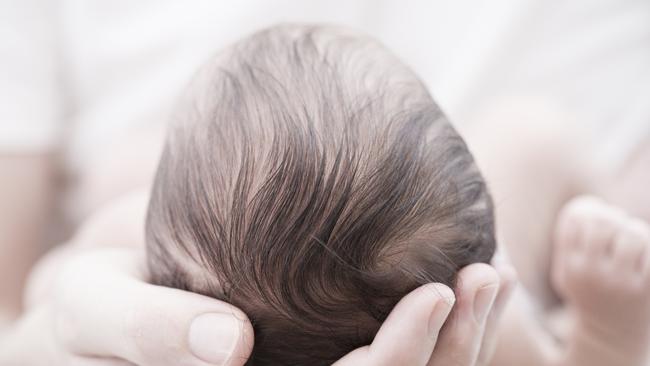Birth of a new generation
There was a time when I would have advised my new grandson to develop skills in science, tech, engineering and maths. But now I think additional skills will be required.

It has been a joyous time in the Salt household over recent weeks. We have welcomed our first grandchild – a boy, Robbie, into our world. How all this came about is a complicated story, so settle in.
Our son lives in Copenhagen. He met a gorgeous Danish girl while she was on exchange in Melbourne several years ago. Eventually she went home, our son soon followed and, well, you can guess the rest. They married in a town hall ceremony at the start of the pandemic and just last month Robbie was born. I had forgotten how mesmerising newborn babies are, even via Zoom. We scrutinise every feature, finding similarities with family members on both sides.
He was born at 2.16pm local time. That translates to 16 minutes past midnight the following day Australian time. This besotted grandfather will be telling his grandson that he has two birthdays and is thus entitled to two presents. Well, maybe I shouldn’t indulge him too much. At least not officially and not in front of his parents. But I so want to! He will be our own, precious, great Australian Dane sharing his life between two countries. Although our daughter, Robbie’s aunt, and her husband live in the US, so we now have family spread over three continents.
Every day there is a FaceTime call to admire and immerse ourselves in Robbie’s remarkable (to us) progress. There are times when he looks worried. He furrows his brow. He hiccups ever so cutely. We wonder what he is thinking. We assign great wisdom to his every wince. In the end it’s probably just wind.
Robbie may go to primary school in Melbourne, then in due course it will be on to university (perhaps) in Denmark or Australia, or maybe the US, in the 2030s. He will enter the workforce in the 2040s, when China and Russia have subsided as global forces due to demographic change. Robbie will be part of a post-Gen Z generation shaped by the tech-savvy world emerging after the pandemic.
There was a time when I would have advised young Robbie to develop skills in science, technology, engineering and mathematics. And no doubt these skills are still important. But now I think additional skills are required to navigate the future. Algorithms will replace formulaic and repetitive work, be it checking out groceries, the conduct of an audit or the development of computer code. Human endeavour and commercial opportunity will emerge into the cracks and crevices that are less well served by machines, namely jobs based around creativity, empathy and entrepreneurship. Jobs in artistic pursuits, the care industry and business development will thrive. As will jobs in education, training and administration. Sure, there are tasks within these jobs that can be digitised but not the bits that deliver accountability and therefore have value.
It is not possible to fully prepare for the workforce that Robbie will enter in 2040s. What we can surmise is that across the 2050s and 2060s he will have a series of jobs. He will need to be literate, numerate, probably bilingual and possess problem-solving skills.
However, perhaps the most valuable skill Robbie will need is something that is not taught at school or at university. It is something he will most likely learn at home and possibly in the company of his grandparents. And that is the ability to be warm and sociable, to be articulate and to fit in to any situation, to be unfazed by adversity and optimistic about the future.
Young Robbie, the future can seem scary at times. But I have confidence in the skills of your generation to fix what needs to be fixed, to navigate whatever challenges may arise, and to deliver a better world to those who follow.




To join the conversation, please log in. Don't have an account? Register
Join the conversation, you are commenting as Logout